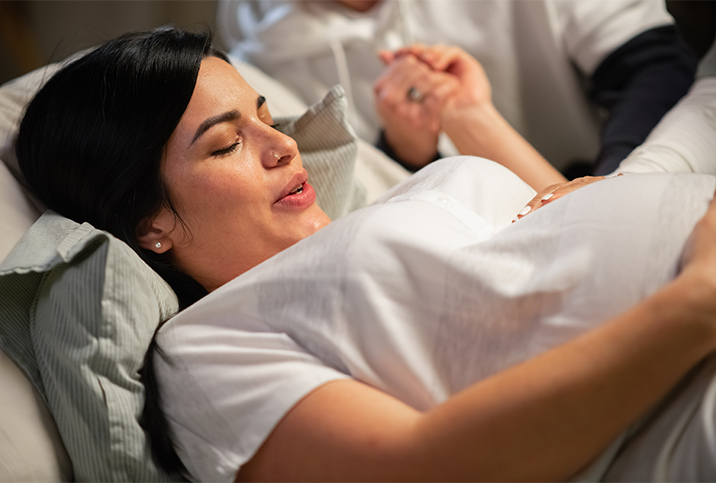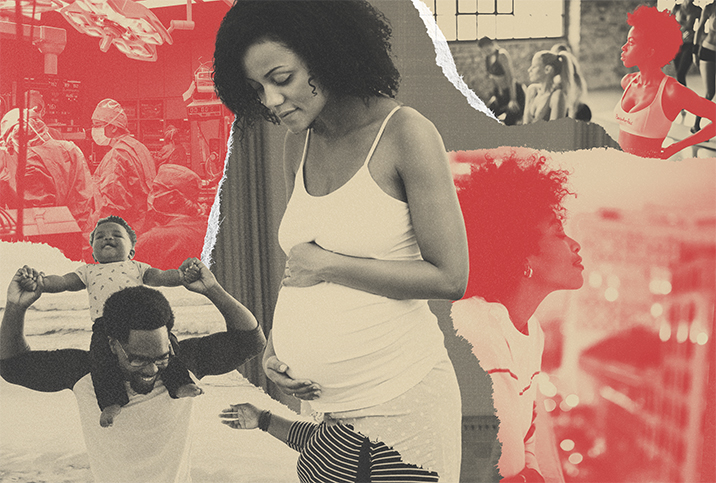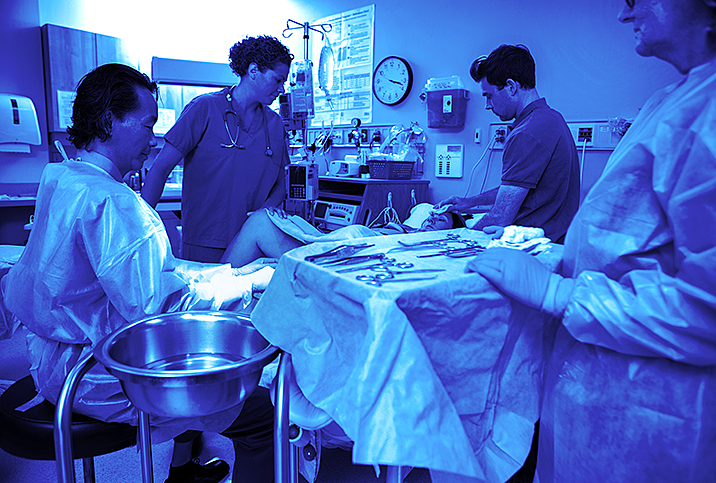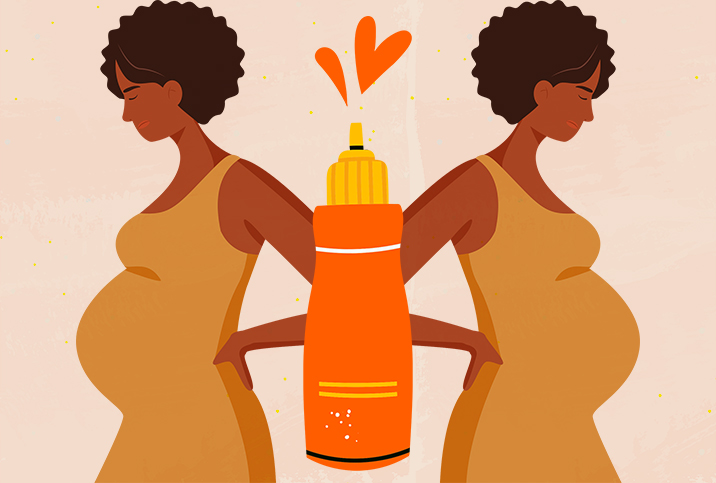Why Some Women Opt for Unassisted Birth and What Doctors Have to Say
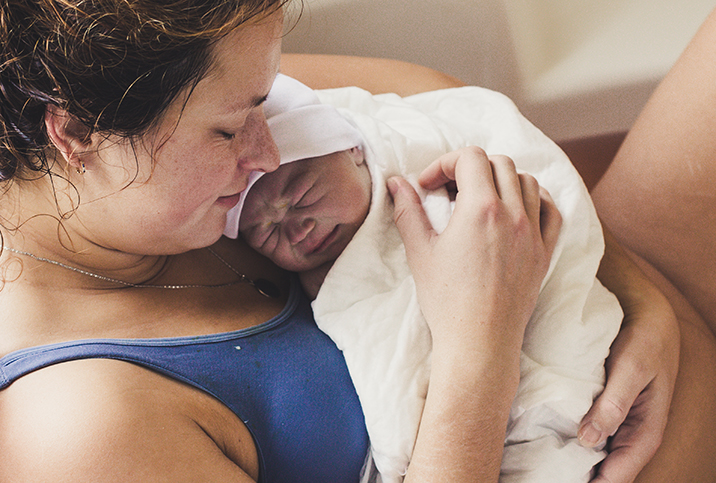
When you imagine someone giving birth, you probably assume it's happening in a hospital or another medical setting, like a birthing center. However, this is not always the case. For some pregnant people, the ideal way to have their baby is through "freebirth."
What is freebirth? Also known as unassisted birth, it means going through labor and delivery at home without the assistance of any trained medical professionals, such as obstetricians and gynecologists, or midwives. Freebirth is different from typical home birth, which is usually attended by a certified nurse midwife who supervises the birthing process to ensure it is progressing properly.
Why some parents choose freebirth
You might wonder why a pregnant woman would opt for labor and delivery without the security of a medical setting. It was an easy choice for Heather McDonald, 31, of Lebanon, New Hampshire.
"For my third child, I decided to freebirth," McDonald said. "I'd already given birth twice in a typical hospital setting and didn't like how restrictive it was. My nurses discouraged me from moving around to labor in more comfortable positions and wouldn't let me eat, even though one of my labors lasted 17 hours."
McDonald labored for 10 hours at home with only the help of her husband, who supported her labor with holistic practices, including providing counterpressure to her contractions, keeping the environment relaxing through aromatherapy, soothing music and dim lights, and making sure she had enough high-protein snacks to have sufficient energy to deliver their baby.
"It was a really great experience," McDonald said of her unassisted birth in 2021. "Having had two previous successful vaginal births, I felt I had a good grasp on what an uncomplicated birth should feel like. If at any point I thought that something was off or I wasn't progressing properly, I was prepared to go to the hospital.
'During my freebirth, I was able to labor at my own pace and it felt like I was working with my body instead of against it.'
"I'm not a martyr," she continued. "I just wanted the freedom to birth in a way that felt right to me, and for my situation, that meant a freebirth. I would recommend it to any pregnant person for whom it makes sense."
Cadi Saab, 34, of Portland, Maine, chose unassisted childbirth for a different reason.
"My first birth was in a hospital and it was a really traumatic experience. I felt so powerless over my body, and the nurses really pushed interventions on me," Saab said. "I went in with the expectation I would have an unmedicated labor and was swiftly talked into interventions like an epidural, Pitocin and my doctor breaking my water for me.
"It took me a long time to get over how out of control I felt both internally and externally in the hospital. There's so little you can control during birth," Saab said, referring to variables such as when you go into labor, how quickly labor progresses and how contractions present.
"During my freebirth, I was able to labor at my own pace and it felt like I was working with my body instead of against it. It was a really positive experience and I found it really helped me heal from my first, less-than-ideal hospital birth," Saab said.
What do medical experts say about freebirth?
While people who have had a successful unassisted birth are often loudly supportive of the practice, medical professionals are wary of the development.
Maria Culotta, M.D., an OB-GYN in Garden City, New York, warns against the risk of freebirth.
"I'm a huge proponent of birthing as an opportunity for empowerment, but freebirth is too dangerous for me to back. There are so many variables that can go wrong and result in an adverse outcome," Culotta said.
"Even if someone has a low-risk pregnancy, things can go wrong at any point in the birth for either the mother or baby," Culotta continued. "In a birth center or a hospital, we are highly trained to ensure a good outcome for both mom and baby. We understand that not everyone agrees with our protocols, but they're dictated by the most up-to-date research to guarantee the best possible outcome."
While some pregnant women may feel comfortable at home, the lack of options for medical intervention can make for a dangerous situation.
At the hospital, team members can offer lifesaving interventions that simply aren't available at home, up to and including a C-section for reasons such as failure to progress, an issue with the baby's positioning or to save a baby whose heart rate is dropping.
"Those are emergency situations that it's impossible to combat at home, and it might be too late to fix by the time a woman in labor makes it to a hospital," Culotta warned.
The risks of freebirth
Numerous risks to the pregnant woman and her child can present themselves during every stage of labor, even if the pregnancy has been perfectly healthy. Risks include uterine rupture, retained placenta, hemorrhaging and more, said Hope Langer, M.D., an OB-GYN in New York City.
"And for the baby, there's always concern about issues presenting with the umbilical cord, like a cord prolapse, cord compression or a cord around the baby's neck," Langer added.
Langer's other major concern for pregnant people choosing to give birth at home is infection.
"In the hospital, we go to great lengths to ensure a clean and sterile environment. At home, it's impossible to replicate that," Langer said. "There are too many variables in your home to make it sterile, which can lead to dangerous infections for everyone involved."
While freebirthing can be an empowering experience for some women, it's incredibly risky. Giving birth without the assistance or supervision of a trained medical provider leaves you vulnerable in situations that are high stakes with many variables of different degrees of risk.
While parents who have gone through a successful freebirth are often proponents of it, medical professionals are not, preferring their patients receive care in a hospital or birthing center.












